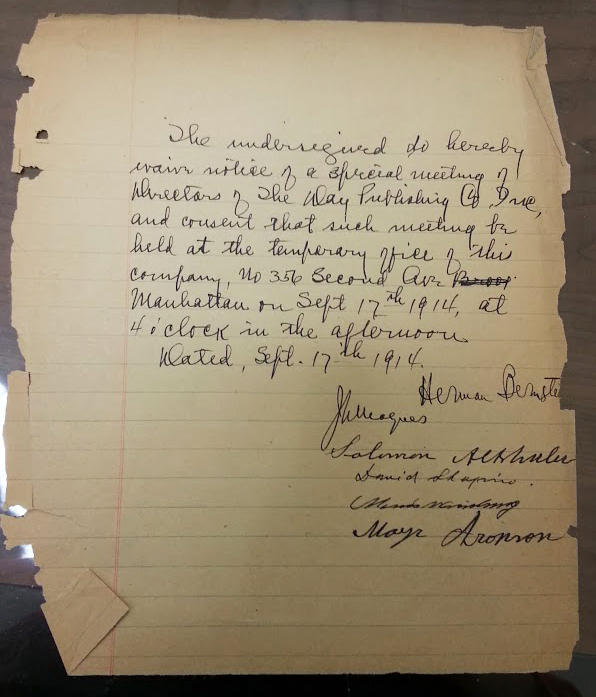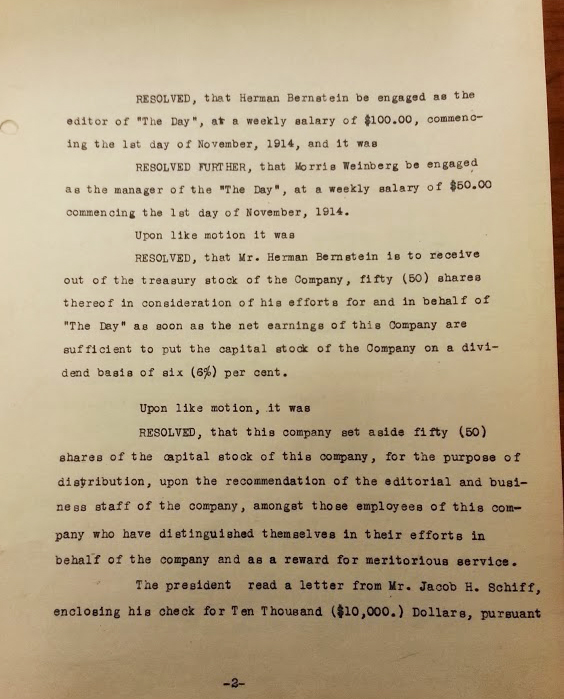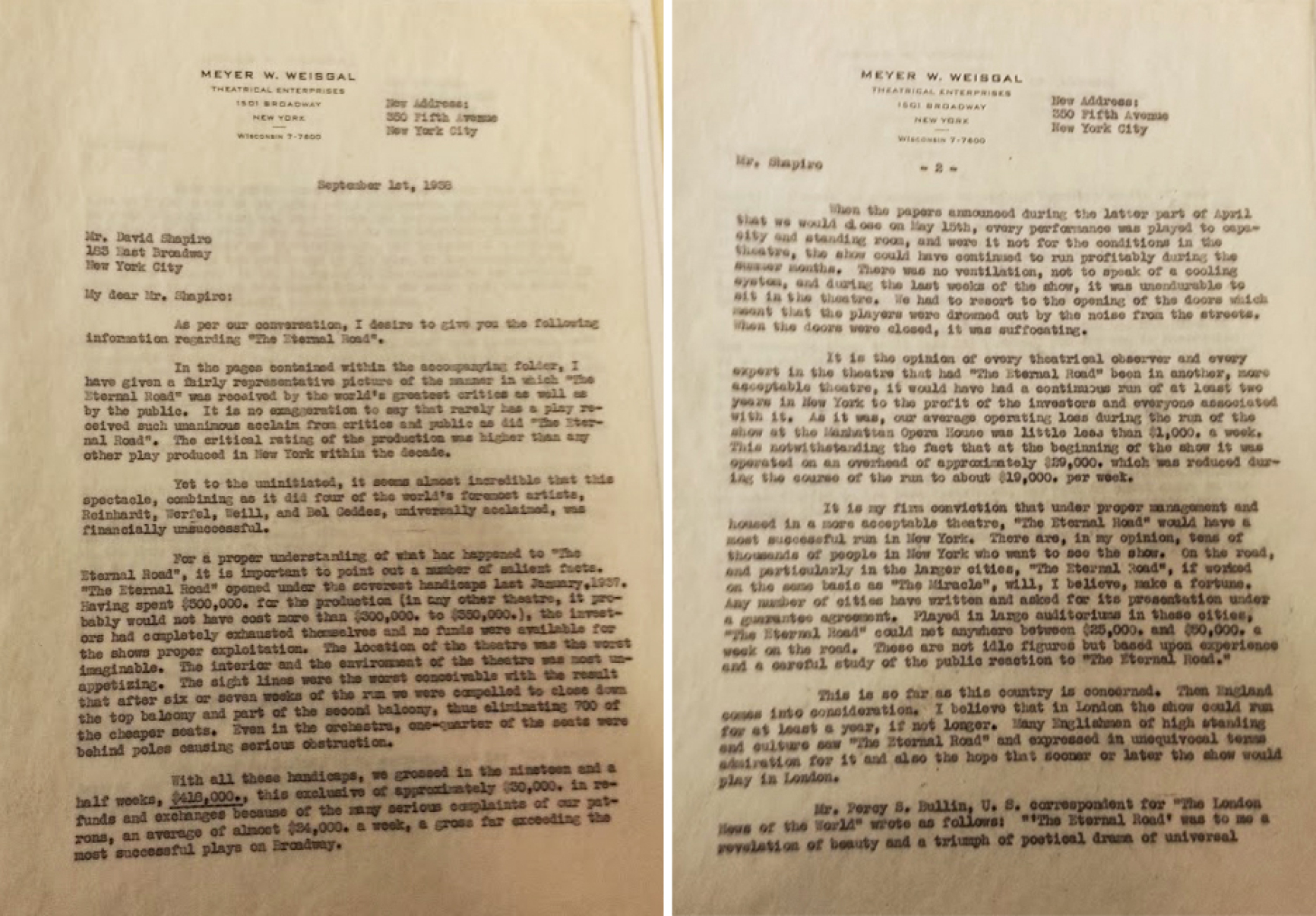Portrait of a Collection: The David Shapiro Papers in the YIVO Archives
by ROBERTA NEWMAN
There are over 1800 record groups (collections) in the YIVO Archives. With this column, we are inaugurating a series that will profile selected record groups, presenting highlights of their contents, and whenever possible, sample digital images.
The collections will be chosen almost at random, to play out the theory that every box in our archives contains historical gems. Open a box at YIVO and you will discover new incidents in Jewish and world history that you never even suspected took place, or develop a deeper understanding about some aspect of Jewish life and culture. Look through the personal papers of a writer or labor leader or internal memos from 50, 60, 100 years ago of a refugee aid organization and become aware, in a unique way, that history and culture are created by human beings and that what gets written up in books is but a fragment of the reality that has gone into shaping our world.
Today’s peek is at a small collection, one of YIVO’s more recent accessions, RG 1912, the Papers of David Shapiro, a founder of the New York Yiddish daily, Der tog (The Day) and financial backer of the Kurt Weill opera-oratorio, Der Weg der Verheissung (The Eternal Road), which premiered in New York in 1937.
Born in Lida, Poland, on March 20, 1872, Shapiro immigrated to the United States in 1888. At first, he worked in a metal factory, after which he established a lighting fixtures partnership with Meyer Aaronson, under the name of Shapiro and Aaronson. In 1914, at the urging of Dr. Judah L. Magnes, Herman Bernstein, and Bernard Semel, he founded the Yiddish newspaper, Der tog (The Day).
The daily paper, which first appeared on November 5, 1914, was founded as an intellectually-minded, independent, non-partisan, and literary publication and soon became a formidable rival to the socialist and labor-oriented Forverts (Forward). It featured many noted writers, including Ossip Dymow, Chaim Zhitlowsky, Yehoash, and Tsivyon. By 1950, Der tog had merged with Der tog-morgn zhurnal (The Day-Morning Journal). That newspaper went out of business in 1971.
The Papers of David Shapiro contains mostly materials about Shapiro's estate. But it also includes foundational documents of Der Tog and one long typed letter from the impresario Meyer Weisgal about The Eternal Road.

appeared. Herman Bernstein, an author, translator, and playwright, was later a correspondent for the New York Herald in Russia in
1917-1920 and at the Paris Peace Conference in 1919. A couple of decades later, in 1931-1933, he served as the U.S. Ambassador to
Albania. His papers are in the YIVO Archives.

financier Jacob Schiff was an early backer of Der Tog.

during its initial run in New York. Weisgal blames the problems on poor management and the deficiencies of the Manhattan Opera House, the site of its
premiere.
Read more about the Papers of David Shapiro.
Biographical data about David Shapiro drawn from the collection description for RG 1912 in the Guide to the YIVO Archives.